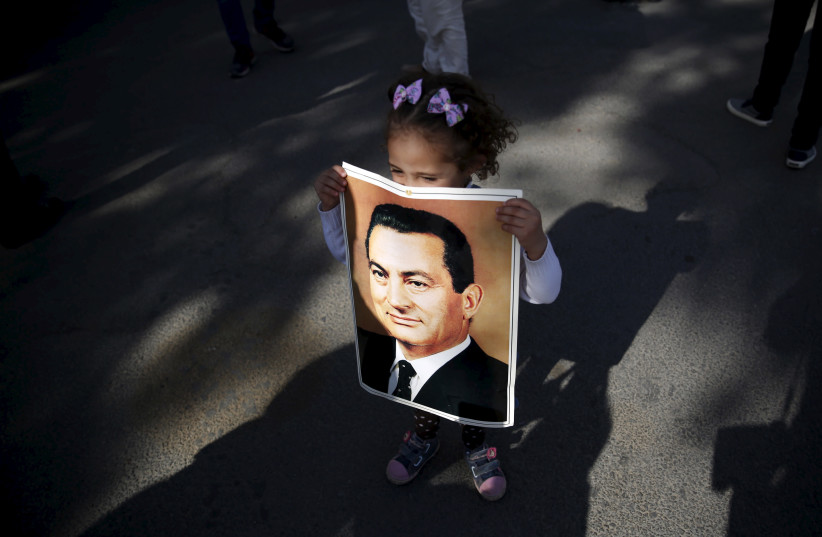As Escape To Aswan, a novel by Amal Sedky Winter, begins, Salma Hamdi, an associate professor of sociology at the University of California, Santa Cruz, arrives in Cairo to deliver a paper at a Conference on Counterterrorism.
Salma was born in Cairo, and lived there until she was 17. Her mother is American. Salma has a troubled relationship with her wealthy and imperious father, Hani Hamdi, health minister in the ruling government, who became Egypt’s president in a military coup.
Things are about to get worse. Salma arranged the trip to tell her father she is going to marry Paul Hays, an American journalist and a Jew, who is giving the keynote address at the conference.
Salma and Paul will soon be swept up in a violent conflict between the Egyptian government and Taj al-Islam, a radical group that has broken away from the Muslim Brotherhood. And Salma will have a reunion of sorts with Murad Ragab, a former lover and now a Taj al-Islam terrorist.
Sedky Winter, the book’s author, is a clinical psychologist, mediator and human rights activist who has lived and worked in Egypt and the United States. Escape To Aswan is her first novel.

A debut novel on the Egyptian military
To maintain suspense, Sedky Winter uses car chases, sandstorms, kidnappings, murder and a disc set to self-destruct during an unauthorized attempt to access information the Egyptian military, Taj al-Islam and the Mossad will do anything to get.
Unfortunately, Sedky Winter is not a gifted writer of fiction. Plot twists and changes in familial and romantic relationships strain credulity. She sets the novel in 2014, indicating, incorrectly, that it was during “the reign of Donald Trump.” And she frequently tells readers what they already know.
After Salma’s father repeatedly insults her, Sedky Winter notes, “Hani’s contempt was everywhere.” After a Mossad agent browbeats Paul, we’re told, “this guy was exacerbating his annoyance.”
And sex scenes rely on soft porn clichés: "The bed sheets felt cool against her body as her fingers traced his, lingering on his belly… A quiver, a shiver, a thrill erupted from her toes; throbbed in her groin with his every thrust.”
That said, Escape To Aswan is often serious and substantive. In a work of fiction grounded in real-life events, Sedky Winter unleashes a scathing critique of the dark forces she believes are perpetuating authoritarian rule, Islamic fundamentalism and pervasive poverty in Egypt.
Egypt’s military and political leaders, she reminds us, overthrew a democratically elected president, released former president Hosni Mubarak from prison, arrested and tortured thousands of student and Islamist protesters and enriched themselves. Soldiers waterboarded, electrocuted and broke the bones of Sheikh Nabulsi.
Remembering his humiliation “with every limp,” obsessed with revenge, convinced he has a monopoly on truth and righteousness and willing to use any and all means to overthrow the regime, Nabulsi became the leader of Taj al-Islam.
When an Egyptian colonel maintains that if the US Congress does not lift its arms embargo on his country “you can kiss the Middle East goodbye,” Paul replies, “You’re right. We do too little, too late. Or too much, too soon.”
When an Egyptian acquaintance describes America as a friend of the rayyis, but not his people, creating temptations for Taj al-Islam to chop off heads, Paul groans, inwardly, and says, “You know I do not agree with my country.”
Sedkey Winter indicates that, unlike the average Egyptian, “deluged with antisemitic propaganda,” elites don’t really believe that “Jews run America.” A few pages later, however, she asserts that the US president, presumably Mr. Trump, was paying off his campaign debt to the American Israeli Public Affairs Committee, “to whose machinations no politician, no matter how small or hawkish, was immune,” by getting rid of all the Arab specialists in the State Department.
Salma claims that if Paul thought the Mossad could be trusted, “he was dumber and denser than a petrified log.” After all, she adds, Mossad had arrested, imprisoned and tortured thousands of Palestinians “while America looked on.”
Israel, Salma tells Paul, “humiliates every Arab, anti-colonial, cell in my body… It’s too late now, but it would have been totally fine with me for the British to give the Zionists Uganda, or for America to give them Florida, or if, in fact, Israel never existed.”
Paul, who had visited a refugee camp as a high school student and concluded then that “animals in the zoo” lived better than Palestinians, replies, “We can work things out, sweetheart. I’m a Jewish-American. I’m not an Israeli.” In these words, Salam sees his kindness; “her eyes glimmered with watery tears.”
Sedky Winter reserves her sympathy for the impoverished masses of Egypt. In Cairo’s Imbaba slum, she reports, 2,000,000 people live in mud-walled structures, about nine to a room – menaced by drug dealers, militant Islamists, and street thugs. In rural areas, farmers rely on waterwheels driven by oxen because they cannot afford electric pumps and generators; penicillin, cough medicine and aspirin is often unavailable.
Thanks largely to women, Sedky Winter maintains, the family is the only social institution that functions in Egypt. Women protect Salma from the men of Taj al-Islam. They wash clothes in the river while tending to their children. Unlike American mothers, they “pass babies and toddlers from hand to hand, cuddling them on communal laps until they fall asleep in whichever lap they land.”
As Escape To Aswan ends, Salma and Paul wonder if they can make living in two worlds work. And we are left wondering how Egyptians can continue to live in the one world to which they have been confined.
The writer is the Thomas and Dorothy Litwin Professor of American Studies at Cornell University.
Escape To Aswan
By Amal Sedky Winter
Cune Press
262 pages; $16
